This post may contain affiliate links, which means I’ll receive a commission if you purchase through my links, at no extra cost to you. Please read full disclosure here.
(이)랑 means “and” in Korean, and is used to connect nouns. It is attached directly after a noun without space.
이랑 vs 랑
“이랑” is used after nouns that end in a consonant, while “랑” is used after nouns that end in a vowel.
For example:
- “책이랑 펜” means “a book and a pen”
- “우유랑 빵” means “milk and bread”









